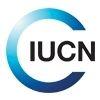|
|
Due to maintenance work, our HR Management System might be inaccessible on
Saturday, 20 April 2024, from 6:00 to 10:00 CEST (UTC+02:00)

Programme Assistant (PSE, Gender, KM and Comms), MFF
|
1. Support the implementation of the MFF Regional Knowledge Management and Communication Strategy (2014) to ensure that the planned outputs are delivered effectively and efficiently, liaising with the MFF regional secretariat, IUCN regional communications unit staff and communications focal persons in the MFF countries. Support the effective use and efficiency of the MFF Document Management System (DMS) as the central repository for key documents.
2. Support the implementation of the MFF Private Sector Engagement (PSE) Strategy to ensure that current partnerships are maintained and developed, and that new partnerships are explored where there is opportunity.
DUTIES:
1. Provide support to the Manager Capacity Development, IUCN Regional Communications Unit and to the National Coordinators and MFF NCBs to undertake the priority activities outlined in the MFF Regional Knowledge Management and Communications Strategy (2014) including;
i. The maintenance of the MFF Document Management System (DMS) a data base of all programmatic documentation.
ii. The planning and coordination of regional capacity development activities related to knowledge management and communications.
iii. The collation and analysis of information needed for MFF reports and studies (i.e. gathering lessons and experience from MFF staff and project collaborators).
iv. Development of communication products such as; web-stories, newsletter stories and other MFF communications outputs.
v. Maintaining up to date web content for the MFF website; ensuring updated news stories and events.
vi. Facilitate information sharing across the MFF programme in collaboration with other programme staff, creating opportunities for vertical and horizontal exchanges information across the programme, within and between projects.
2. Provide Support to the MFF Regional Programme to implement the MFF Regional Strategy for Private Sector Engagement (PSE), developing existing partnerships and initiating new partnerships where there is opportunity. Support MFF country teams to develop and implement national PSE Strategies that complement the MFF goals and objectives and priorities of the country programmes. Document the stories of MFF PS partnership engagement at the regional level and national level.
3. Provide support to the Manager Capacity Development, and to the National Coordinators and MFF NCBs to undertake the priority activities outlined in the MFF Strategic Framework and Action Plan for Gender Integration (2014);
4. Carry out any other duties assigned by, and mutually agreed with the line manager.
Please Note: The above TOR contains the main responsibilities and duties of this position. However in an ever evolving organisation such as IUCN staff members are expected to show flexibility in their approach to work and be willing to undertake other tasks that are reasonably allocated to them but which are not part of their regular TOR. Where any task becomes a regular part of staff member’s responsibilities, the TOR should be changed in consultation between the line manager, the staff member and the HR Unit. Any one of the three may initiate the consultation.
|
• University Degree in Economics, Public Administration, Social Sciences, Communications, Development Studies, or a field of study relevant to the position. • Additional qualification or studies in environmental protection, ecology, or natural resources, an advantage. • 2-3 years of relevant professional work experience in substantive areas related to the post is essential, particularly in evaluation of development and gender (inclusion and mainstreaming) projects including research and data analysis for knowledge management and communication. • Experience in the use of computers and various office applications, database packages and experience in handling web-based management systems. • Excellent command of the English language (verbal and written). |
Applicants are requested to apply online through the HR Management System, by opening the vacancy announcement and pressing the "Apply" button.
Applicants will be asked to create an account and submit their profile information. Applications will not be accepted after the closing date. The vacancy closes at midnight, Swiss time (GMT+1 / GMT+2 during Daylight Saving Time, DST). Please note that only selected applicants will be personally contacted for interviews.
Other job opportunities are published in the IUCN website: https://www.iucn.org/involved/jobs/
About IUCN
IUCN is a membership Union uniquely composed of both government and civil society organisations. It provides public, private and non-governmental organisations with the knowledge and tools that enable human progress, economic development and nature conservation to take place together.
Created in 1948, IUCN is now the world’s largest and most diverse environmental network, harnessing the knowledge, resources and reach of more than 1,400 Member organisations and around 16,000 experts. It is a leading provider of conservation data, assessments and analysis. Its broad membership enables IUCN to fill the role of incubator and trusted repository of best practices, tools and international standards.
IUCN provides a neutral space in which diverse stakeholders including governments, NGOs, scientists, businesses, local communities, indigenous peoples organisations and others can work together to forge and implement solutions to environmental challenges and achieve sustainable development.
Working with many partners and supporters, IUCN implements a large and diverse portfolio of conservation projects worldwide. Combining the latest science with the traditional knowledge of local communities, these projects work to reverse habitat loss, restore ecosystems and improve people’s well-being.
www.iucn.org
https://twitter.com/IUCN
